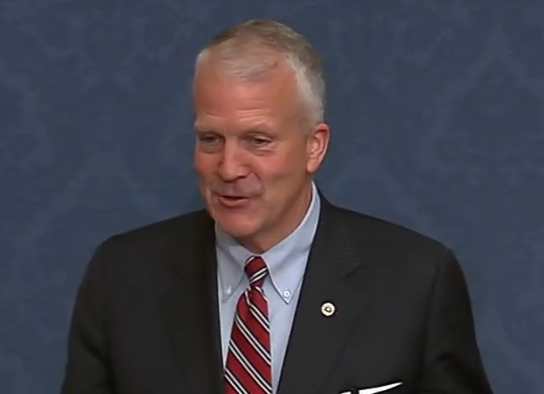Washington, D.C. – U.S. Senator Lisa Murkowski (R-AK) recently introduced S.Res.251, recognizing 2019 as the International Year of the Salmon. The resolution aims to serve as a framework for collaboration across the Northern Hemisphere to recover and sustain salmon stocks through research, cooperation, and public action. The resolution was cosponsored by Senators Dan Sullivan (R-AK), Susan Collins (R-ME), Angus King (I-ME), Ron Wyden (D-OR), Jeff Merkley (D-OR), Maria Cantwell (D-WA), Patty Murray (D-WA).
“Alaskans are incredibly proud of our salmon. My hope is that this resolution will foster discussion and collaboration that will help others more deeply appreciate the tremendous value of these fish — to understand that supporting salmon means supporting food security, marine ecosystems, Alaska Native culture, coastal communities, and economies,” said Senator Murkowski. “Salmon indicate the health of rivers and oceans that people, fish, and wildlife depend on. Their migrations span national boundaries, and collaborating and sharing knowledge across borders is critical to sustaining salmon stocks.”
Congressman Don Young (R-AK), Co-Chair of the Wild Salmon Caucus, introduced companion legislation in the U.S. House of Representatives on June 4, 2019.
[content id=”79272″]
· The International Year of the Salmon (IYS) was launched by the North Pacific Anadromous Fish Commission (NPAFC) and other partners last fall to inform and stimulate salmon outreach and research.
· The IYS aims to serve as a framework for international collaboration, supporting the resilience of salmon and coastal societies throughout the Northern Hemisphere, including research events in Japan, Russia, Norway, Sweden, the UK, Germany, Switzerland, and on both coasts of the US and Canada.
· One of the associated projects is a Gulf of Alaska research cruise focused on studying Pacific salmon during their first ocean winter and determining rearing areas and abundances of specific stocks.
· The IYS focal year is 2019, though activities began in 2018 and are planned to continue through to 2022.
Resolution Highlights:
· Salmon are a vital resource, providing communities with cultural and social value, food security, and economic opportunity.
· Salmon can be vulnerable to impacts from human interference, including development pressures and climate change.
· Drawing on science, Indigenous knowledge, and the experience of fishers, policy makers, resource managers, and others is essential to conserve salmon.
· People from all walks of life can learn about the value of salmon and support salmon conservation.







